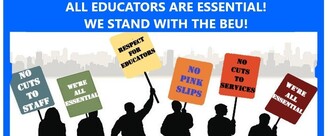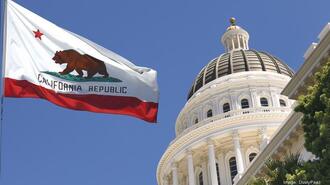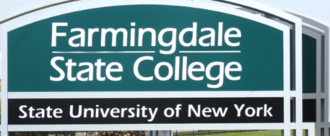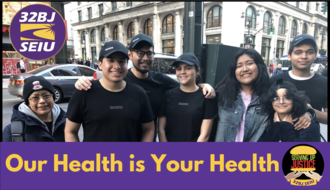-
Police BrutalityIt is important because the police brutality on African Americans have been a repeated cycle far too long in America. We want to grow and evolve as a better nation, if the same issue keeps happening then change will come. Not good change, more and more people will start to take risks and try to find weakness on how to find the solution to the madness. An officer killing someone innocent is not serving justice or duty. They are taking advantage of their power and misguiding the laws they are taught. Change needs to come.328 of 400 SignaturesCreated by Dremond King
-
Justice for Leonard ShandOn September 26, 2019, six officers from the Hyattsville police department (along with one officer from Mt. Rainier and three from Prince George’s County) participated in the killing of Leonard Shand. During a town hall meeting held on October 1, 2019, at the University Christian Church, Hyattsville Mayor Candace Hollingsworth, Chief of Police Amal Awad, and City Administrator Tracy Douglas spoke to the community and reported that all the officers involved would be placed on administrative leave pending the conclusion of a homicide and administrative investigation. On April 13, 2020, Chief Awad reinstated the six Hyattsville officers were reinstated to full duty by Chief Awad without benefit of the homicide and administrative investigation being completed. City Administrator Douglas responded to community concerns about reinstating these officers without benefit of the investigation by stating, "City officials reviewed the events surrounding Shand’s death and found no violations of internal policies…[p]reliminarily, the city police command staff conducted an executive review of the unfortunate death of Mr. Shand and determined that the actions were consistent with departmental policy.” A police department investigating itself is NOT ACCEPTABLE! Any policies that justify the firing squad-style killing of a mentally ill man who was forced to run toward the shooters are NOT ACCEPTABLE! According to the ACLU of Maryland "officers used a flashbang grenade, which inevitably led to the killing of 49-year-old Leonard Shand, according to @PGPDNews. Running away from an exploding flashbang grenade is a natural and inevitable response. The police created a dangerous situation, causing an armed man to run towards them, and then used the inevitable result of their actions as the justification to shoot him. The PGPD Twitter account released photos of bloody knives that the victim was alleged to have been carrying, yet, the the footage released, didi not show anyone to be stabbed. The police left 40+ bullet holes not only left in the victim’s body but in nearby buildings that could have easily hit any other passerby.37 of 100 SignaturesCreated by PG CHANGE MAKERS Demanding Change Since BIRTH

-
All Educators are Essential—Reverse the Brookline LayoffsThe Public Schools of Brookline has sent out 300 layoff notices, taking public schools in exactly the wrong direction and sending the wrong message about our values as a community. We the undersigned demand that the School Committee immediately rescind these notices. We call on them to join immediately with the Select Board and other town officials as well as legislators to find short- and long-term solutions to the town’s fiscal challenges. Each and every one of Brookline’s educators is essential. The School Committee wants to calm down members of the community by ascribing their “fear and anxiety” to “rumors and misinformation.” But the layoff notices speak for themselves with their final paycheck dates and unemployment filing information. For the School Committee to say disingenuously that “no programs have been cut” while eliminating every teacher in some of them is like dropping a neutron bomb on our school community -- harming the people while keeping the structure intact. But this crisis calls for new and unprecedented fiscal design. We know that cuts will fall disproportionately on more economically vulnerable educators, including the majority of staff of color because they have grown in number recently. We stand with our staff of color. BEU Diversity Chair, Jason Montrose said, Brookline’s educators of color “are filled with anger, frustration, and sadness. Whether or not you received a pink slip, these unjust layoffs, due to a lack of oversight by elected officials, have deeply impacted our teaching and learning community of color. We as a community have to worry about this as we deal with a pandemic that is disproportionately impacting communities of color. This is on top of the unlawful murders of people of color with little to no justice served and widespread xenophobia that is plaguing our country because of the COVID 19 pandemic.” The cuts – target 25% of the staff to fill a 5% budget shortfall and leave $26 million reserves -- show how little this school committee understands what it takes for a school system to teach the whole child. Demoralizing, sweeping cuts of vital parts of a well-rounded education -- arts, librarians, early childhood, literacy coaches, specialists, vocational ed, K-8 world language, health and wellness, and more -- are depicted as largely temporary. However, many of our talented educators will leave forever rather than be shown the disrespect of being expected to sit and wait to see if they will have work or not. Fully fund our schools and reverse the cuts now.8,648 of 9,000 SignaturesCreated by Brookline Educators Union -

-
Proposed CA Legislation for Third Degree Murder for Police Negligence of Citizens in CustodyThere are currently only three states that identify Murder in the third degree (Florida, Minnesota, Pennsylvania), California is not one of them. The State of California Penal Code is specific, and covers a broad range of murder definitions, however it does not identify any requirement for peace officers to act in the protection of citizens in their custody. This is an opportunity for the State of California to positively respond to the events of the last decade and make a clear change. This action will also provide local law enforcement the ability to swiftly address and enforce self-governance in a way that may prevent future public protest and ensure a just and lawful review of events in a court of law.1,046 of 2,000 SignaturesCreated by Nathaniel Atherstone
-
Stop Amplifying Trump’s NonsenseBy reporting this stuff you are also repeating it and spreading it. This is causing mass confusion and cynicism. Some people no longer believe anything they’re told, The Lie having become such a common tool of the Republicans.75 of 100 SignaturesCreated by Alden Jenks
-
Support NAACP PATHWAYS TO POLICE REFORMThe criminal justice system cannot work if it is inherently biased. ALL Citizens cannot feel safe from random acts of police violence if there is no systematic accountability and protection from such acts. Time and again it has been demonstrated that the police and local officials have been unable to rein in such behavior that targets specific groups with racial bias, animosity and violence. It is time for reform and change. We are calling on the NYC Council to take action by implementing the 5-Point Plan.101 of 200 SignaturesCreated by David Lamb
-
Reassign Ms. Perdomo as the 2019-2020 students’ 1st grade teacherBecause their year was cut short due to COVID19, we feel, given the circumstances, that she is ideally prepared to continue the curriculum where the students left off. She created a bond with our students which was cut short and we feel it would benefit them and their education to start fresh with a familiar face and with someone who is aware of their strengths and weaknesses as students. Our children, at such a young age, were unfortunately forced to adapt and learn in a different setting- separated from their friends, the school staff and the teacher whom they all love so much. We feel we owe it to them to give them another chance to learn and grow with Ms. Perdomo and their classmates the right way. Ms. Perdomo has been a beacon of light for us parents and has made this difficult transition into distance learning a smooth-sailing process. We hope we can continue the journey of education with her, even if it is for just one school year.83 of 100 SignaturesCreated by Arielys Garcia
-
World Court Hearing on Human Rights Violations in the United States of America.The United States has shown a lack of will for 400 years in addressing and offering remedy and relief to Black and other Minority Citizens regarding their Human and Civil Rights. We would like for the subject to be elevated to the World Court as an Artier in dialogue and seeking remedy to the racial inequities of this system. We believe the dialogue is needed to avoid more violence and bloodshed caused by the continued practice of inequity in the administration of Justice in this Nation.436 of 500 SignaturesCreated by Charles Blatcher, III
-
HB 426- Ahmaud Arbery Hate Crimes ActWe must send a clear message that there is no place for the inhumane treatment of any citizen within the state of Georgia. The modifications I am proposing will make this one of the strongest Bipartisan Hate Crime bills in the nation. I need your support. Let's make Georgia better for ALL of Us! Please sign my petition and share it with everyone you know.2,055 of 3,000 SignaturesCreated by Nakita Hemingway
-
DEMAND ARRESTS -> George Floyd was murderedWe are gutted that George Floyd was killed by four police officers earlier this week. A father and a son, George worked security at a restaurant, where fellow employees say he was loved by all. "Knowing my brother is to love my brother," George's brother Philonise told CNN earlier this week. George was murdered by Minneapolis police officer Derek Chauvin who knelt on George’s neck for seven minutes until he died as he gasped the words we’ve tragically heard before, “I can’t breath,” and called for his mother. Three of Chauvin's colleagues stood by and watched Chauvin end George's life. *Join us to demand that all four police officers who killed George Floyd are charged with murder, and for the vicious and inflammatory attacks on protesters, including the inflammatory attacks by President Trump, to stop immediately. We grieve, we’re angry, and we cannot stop holding leaders accountable.157 of 200 SignaturesCreated by Sue Anne MomsRising.org

-
Grade PostHardworking students deserve to know what grades they will receive. A grade level boost will help students in the long run during this pandemic due to many students feeling stressed and overwhelmed.22 of 100 SignaturesCreated by Bitchtits McTits

-
Chipotle: Protect workers and customers with safety protocols and better working conditions!My name is Teodora Flores, and I work at the Empire State Building Chipotle, prepping, cooking, and serving food with my coworkers on the frontlines of the COVID-19 crisis. When I became the sole provider of my family, Chipotle cut my hours and failed to take workplace safety seriously at my store. I know I am not alone. My Chipotle coworkers and I understand that the same structural racism that put us at risk of policing policies is at play at how we are treated in the fast food industry. As disproportionately Black and Brown workers, we stand together in demanding that the corporation that we work for values our lives like it should. Chipotle workers have been raising the alarm over conditions that are putting both customers and workers at risk during this pandemic. As essential workers we are providing food for our communities, but many of us have to work without safety measures like enforced social distancing. Many have seen our hours cut — reducing our eligibility for sick days and making us vulnerable to dangerous subway commutes. On top of that, our hazard pay is insulting, and Chipotle plans to remove it imminently. As stores reopen and Chipotle workers come into contact with an influx of customers, we do not need less hazard pay, we need 50% more. Chipotle workers face potential exposure to COVID-19 at the workplace for a paycheck that isn’t enough to support our families. To add insult to injury, if my coworkers and I were to contract COVID-19 on the job, most of us do not have access to affordable, quality health care. We believe everyone should have access to health care and safe working conditions—not just for Chipotle workers but for all. The health and safety of the customers we serve are directly tied to the health and safety of Chipotle workers. Chipotle is a company with a history of high-profile food-borne illness outbreaks that have sickened hundreds across the country over the last several years. Chipotle recently agreed to pay the largest-ever fine in a food-safety case of over $25 million over incidents that included workers working sick after feeling pressured not to call out. Chipotle turnover is 145% — lowering the skills and experience among workers handling food and sanitizing stores, which undermines safety. The coronavirus has highlighted the danger of standard industry practices for essential workers and the public. Chipotle should focus on fostering a stable and professional workforce that can focus on public safety. Chipotle’s stock price has risen to historic levels during the COVID-19 pandemic. The company has never been better position to meet our needs — the essential workers so central to Chipotle’s success. We are calling on Chipotle to live up to its ‘food with integrity’ slogan and protect customers and workers alike. Workers like us are calling on the company to: ✔ immediately ensure we have proper personal protective equipment and plexiglass barriers and inform us of workplace exposure to COVID-19. ✔ enforce safe social distancing practices in all stores and provide workers with sufficient hazard pay and hours to support our families during the pandemic. ✔ provide stable, full-time hours to all workers who want them in compliance with New York City’s Fair Workweek Law and to make sure more we have access to sick days to keep the public safe. Chipotle workers are essential to keeping stores running safely during the COVID-19 outbreak and beyond. Tell Chipotle that selling ‘food with integrity’ means protecting the safety and well-being of workers and the customers we serve. We are fighting for ourselves and the public. Will you join us by signing this?20,999 of 25,000 SignaturesCreated by 32BJ SEIU













